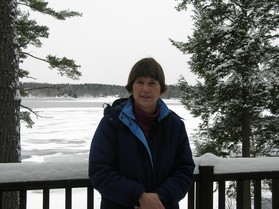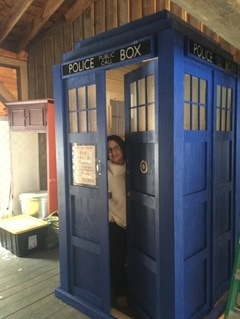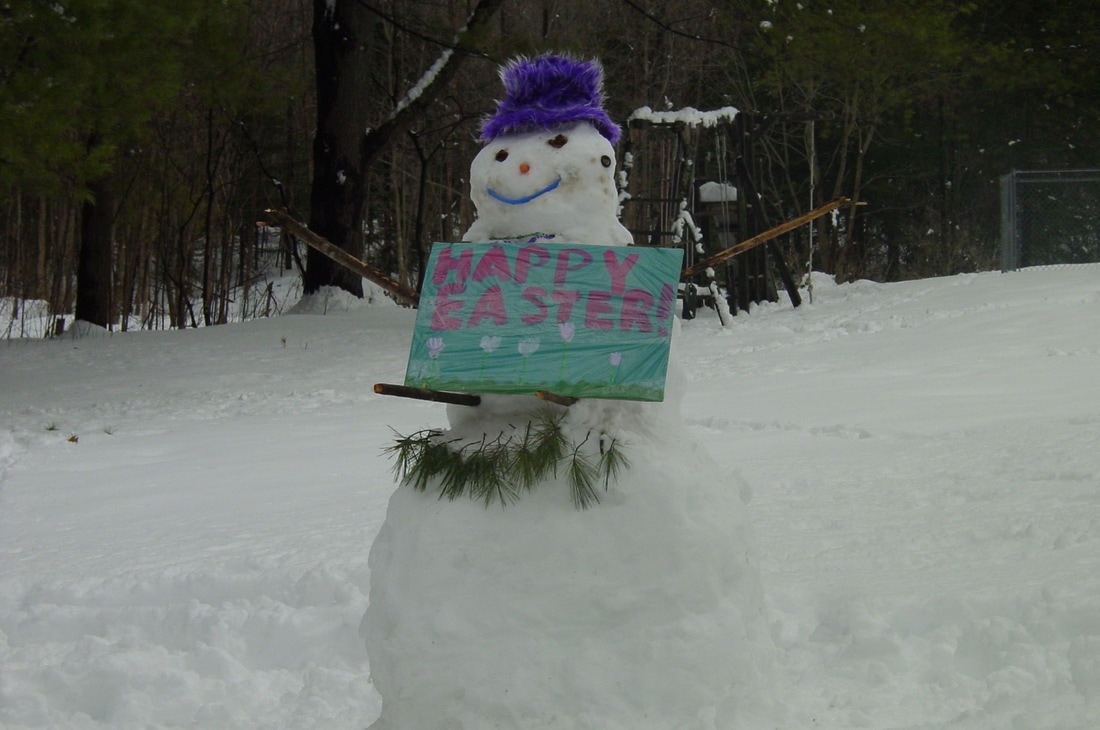|
Don’t play games with me. Some of us want to say that to the weather as winter whips back around and declares itself the winner this weekend.
Depending on the tone, “don’t play games with me,” could go different ways in our imagination. 1) The threatening tone of a mafia boss or overworked parent. 2) An impatient,” cut to the chase” of a busy or distracted colleague. 3) The pleading tone of someone afraid. Maybe you can imagine more. The hand of the LORD came upon me, and he brought me out by the spirit of the LORD and set me down in the middle of a valley; it was full of bones. He led me all around them; there were very many lying in the valley, and they were very dry. -Ezekiel 37:1-2 It’s easy to imagine Ezekiel wondering, “What kind of game is God is playing with me.” There’s even a riddle, He said to me, "Mortal, can these bones live?" I answered, "O Lord GOD, you know." The “game” becomes interactive…… Then he said to me, "Prophesy to these bones, and say to them: O dry bones, hear the word of the LORD. Thus says the Lord GOD to these bones: I will cause breath to enter you, and you shall live. I will lay sinews on you, and will cause flesh to come upon you, and cover you with skin, and put breath in you, and you shall live; and you shall know that I am the LORD." Ezekiel decides to play along….. So I prophesied as I had been commanded; He’s incentivized….. and as I prophesied, suddenly there was a noise, a rattling, and the bones came together, bone to its bone. I looked, and there were sinews on them, and flesh had come upon them, and skin had covered them; but there was no breath in them. Are you tempted to play yet? Maybe the sound track has started running in the background, “dem bones, dem bones, dem dry bones” But the big win is not quite in sight. Then he said to me, "Prophesy to the breath, prophesy, mortal, and say to the breath: Thus says the Lord GOD: Come from the four winds, O breath, and breathe upon these slain, that they may live." And now Ezekiel is all in, swept up in the Creator’s playful anticipation. I prophesied as he commanded me, and the breath came into them,and they lived, and stood on their feet, a vast multitude. Wow, just, WOW! As Ezekiel catches his breaths, God gets very real. "Mortal, these bones are the whole house of Israel. They say, 'Our bones are dried up, and our hope is lost; we are cut off completely.' Therefore prophesy, and say to them, Thus says the Lord GOD…..I will put my spirit within you, and you shall live….. -Ezekiel 37 In our present reality gamification has become a way of life in marketing, health care approaches, education, work strategies, investments and more. "The gamification techniques are intended to leverage people's natural desires for socializing, learning, mastery, competition, achievement, status, self-expression, …. to make existing tasks feel more like games.[33] " A life of discipleship offers an alternative to a life trying to navigate ever changing rule of the game. Discipleship is the quiet joy of sustaining passion over the long haul, when it’s not all fun and games. It’s a life of learning to stay with God's often odd approach until the moment of transformation comes. Jesus wasn’t playing games with Mary and Martha in the raising of Lazarus (better late than never). His tears were as real as theirs (John 11:1-45). He wasn’t just fooling around when he delayed getting there. His confidence in God’s purposeful presence is clear. It’s even obvious that Jesus knew he’d ticked people off by not playing by expected rules and now they weren’t playing games abut wanting to stone him. Yet he speaks in apparent riddles: "Are there not twelve hours of daylight? Those who walk during the day do not stumble, because they see the light of this world. But those who walk at night stumble, because the light is not in them."…. "Our friend Lazarus has fallen asleep, but I am going there to awaken him." Neither Thomas nor Martha were in the mood for games. But because they loved Jesus, they stuck with him while they tried to watch and learn. Thomas, who was called the Twin, said to his fellow disciples, "Let us also go, that we may die with him."……When Martha heard that Jesus was coming, she went and met him, while Mary stayed at home. Martha said to Jesus, "Lord, if you had been here, my brother would not have died. But even now I know that God will give you whatever you ask of him." And in God’s very real play of creation, Jesus said to her, "Your brother will rise again." Martha said to him, "I know that he will rise again in the resurrection on the last day." Jesus said to her, "I am the resurrection and the life. Those who believe in me, even though they die, will live, and everyone who lives and believes in me will never die. Do you believe this?" And Martha takes her turn as Ezekiel had so very long before. She said to him, "Yes, Lord, I believe that you are the Messiah, the Son of God, the one coming into the world." Then, with thanks, Jesus entered the dance that Ezekiel had experienced so many years before. …..he cried with a loud voice, "Lazarus, come out!" The dead man came out, his hands and feet bound with strips of cloth, and his face wrapped in a cloth. Jesus said to them, "Unbind him, and let him go." (John 11:1-45) Easter has come. Easter is coming. It’s our turn. BONUS Family activity: Arts & Crafts for Kids : Q-Tip/Cotton Swab Skeleton
1 Comment
 This week’s lectionary is full of questions. Each part of the conversation among the LORD, Samuel, and Bethlehem’s elders leads with a question. (1 Samuel 16:1-13) Each question probes an obstacle. "How long will you grieve over Saul?” the LORD asks Samuel, wanting Samuel to move on to bigger and better things. “How can I go?” asks Samuel in return, fearing an egotistical, vengeful ruler’s wrath. And finally, “do you come peaceably?” ask trembling elders, wondering what will come of Samuel’s visit. With the questions come answers. The LORD assures Samuel that the unfolding future gives cause for joy and confidence. Samuel receives just enough guidance to put one foot in front of the other into God’s plan. To the elders’ question, “do you come in peace?” Samuel answers a simple, “yes,” and an invitation to worship. Eyes wide open while the family assembles, Samuel scopes out the spiritual gifts in the “body.” The gospel lesson this week also holds a question. But this time it is from a leadership group finding it hard to take a man at his word. “…So they said again to the blind man, "What do you say about him? It was your eyes he opened." He said, "He is a prophet." They did not believe that he had been blind and had received his sight until they called the parents of the man who had received his sight.” Questions can express feelings, clarify meanings, challenge truths and even provoke action. Recently in that same town of Bethlehem, the graffiti artist, Banksy opened a hotel with the worst view in the world. Full of the artist’s whimsical, dialogue provoking art, entering the hotel is like entering a question. Asking good questions leads as much to good relationship as to good answers. Perhaps the former is even more important than the latter. When questions are true and authentic, they open us to be illuminated with new understanding. There is room to sing a new song with Samuel, with the formerly blind man who now sees, with neighbors who yearn for a word of hope. …… everything exposed by the light becomes visible, for everything that becomes visible is light. Therefore it says, "Sleeper, awake! Rise from the dead, and Christ will shine on you." Ephesians 5:13-14  Near the end of 2016, my good friend Susan invited me to participate in a new group she and a friend had initiated. I was there at one of the first meetings when the group adopted the name Capital Area New Mainers Project, CANMP for short, pronounced camp – so very appropriate for Maine! The purpose of the group is to welcome and support immigrants in the Augusta – Waterville area. In particular, Susan asked me to consider being on the transportation working group, since I work at Maine DOT and have studied and participated in different Rides ministries. After the first meeting I was excited about having found such a good fit for sharing my gifts. I volunteered to be the note-taker for the transportation subgroup. But it wasn’t long before that bliss was crowded out by anxieties about recent controversy around US immigration policy. Might people at work, or in my neighborhood, or even people within the church, be critical of CANMP or of me for participating in it? I turned to the biblical witness, or I should say it turned to me; I can’t remember which was first. Soon after Christmas, my pastor Ned Crockett preached on the lectionary reading Matthew 2:13 – 23, the familiar story of Joseph and Mary fleeing to Egypt with Jesus, who was still an infant. I made the connection that many of the immigrants here and in other countries are doing the same thing – fleeing for safety. I also thought about the story of Jacob and his twelve sons in Genesis 43 – 47. They were moving, also to Egypt, to avoid starvation. There were fewer than 100 people in Jacob’s extended family; most of them are mentioned by name in Genesis 46:8 – 27. This group joined Joseph and his family of four already in Egypt. Out of this small group came ancient Israel, the Diaspora that started in Jeremiah’s time, and Judaism as we know it today – tens of millions of people, who have made tremendous contributions to the world community over thousands of years. The Bible teaches by these examples, but also by direct commands. “Don’t take advantage of a stranger. You know what it’s like to be a stranger; you were strangers in Egypt.” (Exodus 23:9, The Message) Older translations (like KJV and RSV) use the word stranger, but the newer translations I looked at use the word alien. This reflects what it must be like to be in a culture different from one’s own – and how different these folks seem to us when they come into our culture. Leviticus 19:33 (RSV) challenges “love [the stranger] as yourself”. Leviticus 23:22 commands leaving gleanings in the fields so that the poor and the stranger can make an honest living by gathering them. In Matthew’s account of the last judgment, the king (usually equated with the Son of Man, who is Jesus himself) commends those who welcomed him when he was a stranger (Matthew 25:35) and then later explains “Truly I tell you, just as you [welcomed] one of the least of these [strangers] who are members of my family, you did it to me.” (Matthew 25:40) When I attended a “Welcoming New Mainers” potluck supper in February I shared a table with several CANMP volunteers and four Afghani girls and women. My friend Susan, speaking slowly and clearly, said to the two teenage girls, “Do you see all these people here?” (We were in a middle school cafeteria.) “All of them are glad you are here.” That is welcoming. In its first months CANMP has given dozens of rides, perhaps over one hundred by now. But the drivers are doing much more than taking passengers from point A to point B. They are helping the new Mainers to communicate with medical offices; find their way to wholesome reasonably- priced food in our big-box stores; and much more. It’s hard even to imagine how strange our culture must feel to those from so far away. Even with the steep language barrier, the drivers have found ways to establish rapport, and the new Mainers have offered hospitality. The drivers and organizers find this work deeply rewarding. Besides notes on three meetings, my biggest contribution so far has been a complicated flowchart. After about a month of experience, the group spent close to an hour discussing all the challenges of providing rides, from matters of principle down to details like steep driveways. Taking another hour or two I was able to get this all onto one page - with lots of words, colors, arrows and shapes. The other CANMP organizer allowed that “it was a little intimidating at first”! But she then went on to say that the flowchart actually had been quite helpful in explaining the process to a new volunteer. It made my day to hear that my engineering skills (and also my United Methodist tendency to want to organize things) had made a valuable contribution to an organization that is doing good work. So far I have not volunteered to drive, partly because I’m not available when most of the rides are needed, but also partly out of fear. I wear hearing aids, so conversation (especially on the telephone) can be difficult. I’m afraid that adding in the language barrier would make it nearly impossible for me to succeed as the other drivers have. But I’m trying to stay open to God’s leading on this. Some rides are needed on Saturdays, and I know that if God calls me to do something, God will also give me the ability to do it. A closing note: upon seeing that overall CANMP has as many volunteers as there are new Mainers in the capital area, I had this thought: there are current Mainers who also could benefit from the kind of support that CANMP is providing. (Besides transportation this includes family mentoring teams and English as a 2nd Language classes.) Along those lines I plan to attend a forum sponsored by the UMA Senior College: “Getting There When You Can’t Drive”. It is free and will be held Sunday, March 19, at 2:00 PM in Jewett Hall on the University of Maine Augusta campus. See http://www.uma.edu/announcements/forum-getting-cant-drive-march-19th/ Please feel free to contact me at [email protected] if you would like to learn more about the event at UMA or about CANMP. Grace and peace to you, Anne Anne Carter is a member of the Winthrop United Methodist Church and a candidate for Deacon. She recently completed a Master of Theological Studies degree at Boston University School of Theology.  When it comes to Lenten fasting, I find myself thinking more about time than food. As a baby boomer who grew up eager to take in a world of possibilities and as an adult scrambling to adapt in the information age, my measurements of time have grown increasingly smaller and more crowded. Attempts to “live in the moment” have backfired for many of us. Trying to cram more and more time and space into each minute, we’re discovering that this moment, this hour, this day, is not “bigger on the inside.” We are finite in our capacity. But each moment is one of an infinite number co-existing in God’s self, a grace space larger than any of our personal containers. We connect with that sacred spaciousness when we set aside what we’ve been cramming in. This need is particularly poignant this year as an unrelenting news feed demands attention. In a political landscape where communication comes as a spectrum of off-the-cuff to scripted, we hear it all and wonder what is authentic. Hearing is not the same as listening. Listening requires time. When we start listening to another, we first start to hear ourselves. Inner chatter ignites. Prejudices surface. But when we persist in listening, really listening, to another person a spaciousness opens. Lent is about tending to that listening space such that we become aware of God’s presence in it. With quieted human selves, we become aware of the hunger for God usually submerged by all with which we stuff our minds, bodies and calendars. Now we can begin to hear and feel God’s hunger for us. We can act in response to the mutual hunger satisfied only by Creator and Creature reconnecting in acts of worship, devotion, mercy, and justice. We see Jesus embodying his moments in this way. He notices, listens, hears, and acts. The legion inhabiting a man of Gerasene exits his space when Jesus notices the man’s painful predicament; listens to who he thinks he is; hears who he really is; and sends the legion on its way. (Mark 5: 1-13). Noticing Nicodemus’ night clad visit, Jesus listens to his questions; hears what the real heart questions are; and speaks back active words of truth and challenge. (John 3: 1-17) Peter noticed something extraordinary on the Mount of Transfiguration. But he didn’t stop to listen or deepen hearing before springing to action. “Lord, …I will make three dwellings here……” Then God really got his attention with that voice from a brilliant cloud, “This is my Son, the Beloved; with him I am well pleased; listen to him!” It was Jesus who acted out of genuine hearing. Hearing God’s empowering word, hearing Peter’s deep need, Jesus touched them and said, “get up and do not be afraid.” (Mathew 17: 1-9) I have no words of judgment against Peter, only gratitude to think that Jesus might teach me in the same way when I act before hearing, or fail to notice what’s really going on. In Grace, Karen |
Karen L MunsonA pastor and artist, I'm wondering while I'm wandering through God's marvelous creation. Archives
March 2020
Categories |

 RSS Feed
RSS Feed